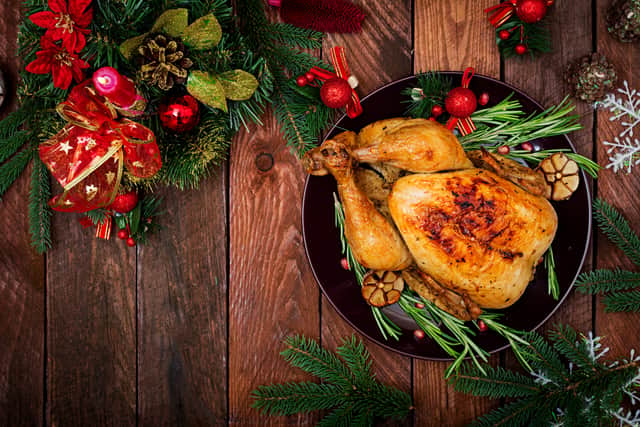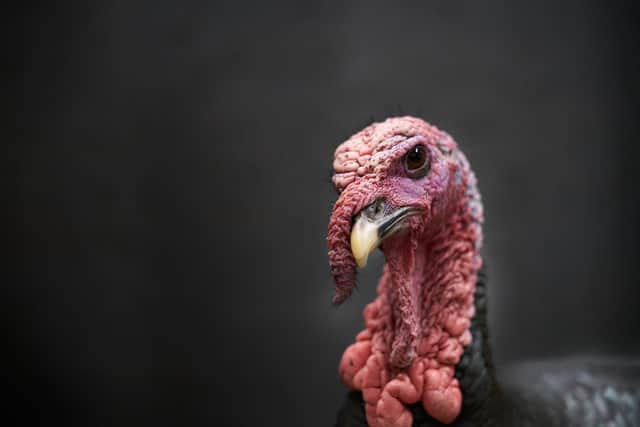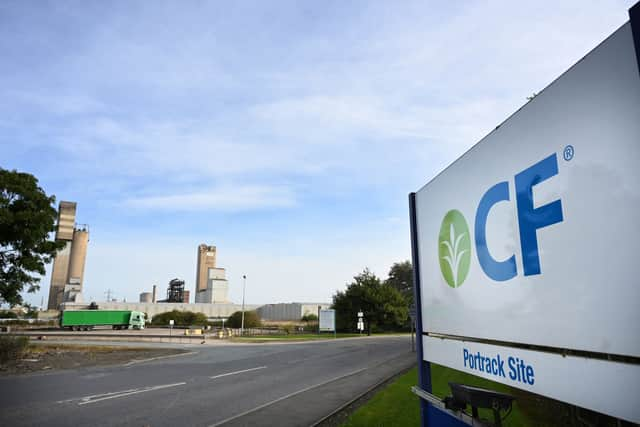Will there be a Christmas turkey shortage 2021? What industry experts have said amid labour and food shortages
This article contains affiliate links. We may earn a small commission on items purchased through this article, but that does not affect our editorial judgement.
and live on Freeview channel 276
Alongside pigs in blankets, stuffing and brussels sprouts, turkey is a key part of most Christmas dinners up and down the UK.
And Brits appear to have been thinking about this festive food earlier than ever this year, with competition for delivery slots already fierce according to Waitrose and Ocado.
Advertisement
Hide AdAdvertisement
Hide AdBut this interest has coincided with warnings about the supply of some Christmas food staples after it became clear that the UK was on the verge of a labour and CO2 crisis.
So will there be enough Christmas turkey for everyone this year?
Here’s what you need to know.


Why could there be a shortage of Christmas turkey?
There are two key reasons why there have been doubts about turkey supplies this Christmas: labour shortages and the CO2 crisis.
- Labour shortages
There have been fears over whether there would be enough people to work in the factories that slaughter and process these foods.
Advertisement
Hide AdAdvertisement
Hide AdWhen the UK left the EU it adopted a points-based immigration system which was designed to promote the ‘high-skill, high-wage’ economy you often hear referred to by the Prime Minister Boris Johnson and the Chancellor Rishi Sunak.
Because of this move, workers from the EU can no longer freely come to the UK for work under the EU’s freedom of movement rules.
Unless they have a job that’s on the ‘shortage occupation list’ or hold settled or pre-settled status, they must have a job offer, qualifications equivalent to A-levels and a salary expectation above £25,600 to secure a visa.


Due to workers in food processing tending to not hold the qualifications or salary expectations required, UK businesses have been forced to recruit from a smaller pool of labour than before.
Advertisement
Hide AdAdvertisement
Hide AdAnd with other industries, like haulage, offering high wages, and many workers opting to return to their home countries, the pool of labour has dwindled even further, leading producers to rear fewer turkeys.
In a bid to bolster the workforce, the Government announced in September that it would make 5,500 temporary visas available to foreign workers.
But in October, chairperson of trade body the British Poultry Council (BPC), Graeme Dear, told MPs that this temporary visa fix had come too late for poultry farmers to rear “enough turkeys for a full Christmas”.
“We will do our utmost to make sure that Christmas is as normal as it can be, but there is a likelihood that there will be a shortage,” Mr Dear said at the time.
- CO2 crisis
Another issue to hit the poultry sector was the CO2 crisis.
Advertisement
Hide AdAdvertisement
Hide AdCarbon dioxide is used to stun animals before slaughter, a key process that limits their suffering.
The gas is produced as a by-product by fertiliser manufacturers.
In September, major CO2 producer CF Fertilisers shut down its two UK plants due to high energy costs associated with the energy supply crisis.
It meant 60% of the UK’s CO2 supply was under threat.


Given it is illegal under UK animal welfare laws to not stun animals before slaughter, a lack of CO2 threatened to derail almost the entire food supply chain.
Advertisement
Hide AdAdvertisement
Hide AdThe plants reopened a few days later after the government intervened, but it was not until a longer-term deal was reached in October that CO2 supply was guaranteed until January 2022.
This deal meant there would be enough CO2 around to stun turkeys in the run up to Christmas.
Will there be a shortage of turkey this Christmas?
Despite their previous warnings, poultry bosses now reckon there will be enough turkey this Christmas.
This is largely because labour shortages have been eased - between 2,500 and 3,000 workers have signed up for the Government’s temporary visa scheme, while the industry has also managed to secure some workers who have settled status.
Advertisement
Hide AdAdvertisement
Hide AdHowever, BPC CEO Richard Griffiths told the BBC that consumers could expect less choice than in a more typical year.
“We’ve been able to streamline products and reduce the variety, so that helps with the overall volume,” he said.
“There will be a focus on whole birds and very simple crowns and roasts.”
He added that there will be a bird for “everyone who wants one” despite the reduction in choice.
Advertisement
Hide AdAdvertisement
Hide AdBut choice could be further compromised by consumer behaviour.
According to data from Kantar cited by the Evening Standard, shoppers spent £6 million more on frozen turkeys in October than a year earlier - activity which suggests some products could sell out faster than usual.
A message from the editor:
Thank you for reading. NationalWorld is a new national news brand, produced by a team of journalists, editors, video producers and designers who live and work across the UK. Find out more about who’s who in the team, and our editorial values. We want to start a community among our readers, so please follow us on Facebook, Twitter and Instagram, and keep the conversation going. You can also sign up to our email newsletters and get a curated selection of our best reads to your inbox every day.
Comment Guidelines
National World encourages reader discussion on our stories. User feedback, insights and back-and-forth exchanges add a rich layer of context to reporting. Please review our Community Guidelines before commenting.
